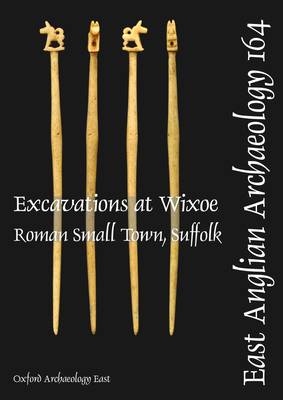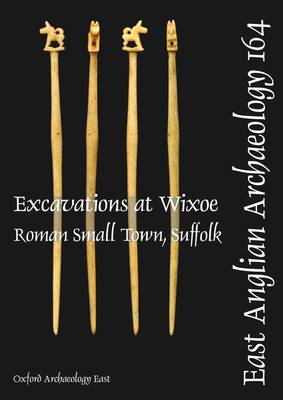
- Retrait gratuit dans votre magasin Club
- 7.000.000 titres dans notre catalogue
- Payer en toute sécurité
- Toujours un magasin près de chez vous
- Retrait gratuit dans votre magasin Club
- 7.000.0000 titres dans notre catalogue
- Payer en toute sécurité
- Toujours un magasin près de chez vous
Description
Construction of the Abberton pipeline has provided the first opportunity for a major excavation within a Roman small town in Suffolk for more than 20 years. The pipeline, which extends from Kirtling Green (Suffolk) at the north end to Wormingford (Essex) at the south, also provided an opportunity to investigate the hinterland of the Roman town.
Wixoe is one of only eight small towns known within the county and appears to have developed on both banks of the River Stour, close to an ancient crossing point and adjacent to the Via Devana. Apart from antiquarian investigations, little archaeological work had been undertaken within the town. Recently, however, extensive fieldwalking and metal detecting surveys conducted by local amateur archaeologists have led to the recovery of over 4,000 coins from the site of the town and its environs.
A much clearer history of the town has begun to emerge as a result of the fieldwalking, geophysical survey, evaluation and excavation undertaken in advance of the pipeline project. This work has shown that Wixoe was a post-Boudican planned town probably established at a similar time to several others in the region. The town appears to have reached its peak in the 2nd century, following which there seems to have been a slow decline (at least in the excavated part of the settlement) leading to its eventual abandonment in the very late 4th or early 5th century. The excavations produced a significant fmds assemblage that includes a major collection of pottery, analysis of which has identified supply patterns similar to other civilian Roman 'borderland' settlements in the region, especially Great Chesterford.
Wixoe is one of only eight small towns known within the county and appears to have developed on both banks of the River Stour, close to an ancient crossing point and adjacent to the Via Devana. Apart from antiquarian investigations, little archaeological work had been undertaken within the town. Recently, however, extensive fieldwalking and metal detecting surveys conducted by local amateur archaeologists have led to the recovery of over 4,000 coins from the site of the town and its environs.
A much clearer history of the town has begun to emerge as a result of the fieldwalking, geophysical survey, evaluation and excavation undertaken in advance of the pipeline project. This work has shown that Wixoe was a post-Boudican planned town probably established at a similar time to several others in the region. The town appears to have reached its peak in the 2nd century, following which there seems to have been a slow decline (at least in the excavated part of the settlement) leading to its eventual abandonment in the very late 4th or early 5th century. The excavations produced a significant fmds assemblage that includes a major collection of pottery, analysis of which has identified supply patterns similar to other civilian Roman 'borderland' settlements in the region, especially Great Chesterford.
Spécifications
Parties prenantes
- Auteur(s) :
- Editeur:
Contenu
- Nombre de pages :
- 160
- Langue:
- Anglais
- Collection :
Caractéristiques
- EAN:
- 9781907588105
- Date de parution :
- 29-08-18
- Format:
- Livre broché
- Format numérique:
- Trade paperback (VS)
- Dimensions :
- 210 mm x 297 mm
- Poids :
- 770 g

Les avis
Nous publions uniquement les avis qui respectent les conditions requises. Consultez nos conditions pour les avis.






